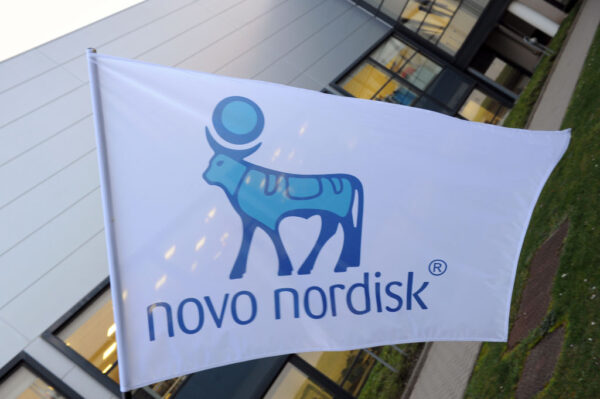
An experimental Novo Nordisk obesity pill led to weight loss of 13.1% in a clinical trial, topping results posted in studies of the company’s approved injectable medication Wegovy. It’s early days and more testing is needed, but the preliminary data suggest that this pill has the potential to offer patients superior weight shedding in a more convenient oral formulation.
Phase 1 data for the once-daily Novo Nordisk pill, amycretin, were presented Thursday during a company investor event. The study followed participants for 12 weeks. In that span, those who received a placebo lost 1.1% of their body weight. Wegovy, which is administered as a once-weekly injection, was not part of this clinical trial. Published clinical trial results for that drug show it led to weight loss of 5.9% measured at 12 weeks.

Using Informed Awareness to Transform Care Coordination and Improve the Clinical and Patient Experience
This eBook, in collaboration with Care Logistics, details how hospitals and health systems can facilitate more effective decision-making by operationalizing elevated awareness.
Wegovy, whose main ingredient is the peptide semaglutide, offers one mechanism of action: activating the GLP-1 receptor to spark blood sugar and appetite control effects. Amycretin is a single molecule that works in two ways. In addition to binding to the GLP-1 receptor, it targets and activates the amylin receptor, which also plays a role in blood sugar control and appetite regulation. Peptide drugs are usually injectable. But Novo Nordisk makes amycretin with the same technology used in its oral formulation of semaglutide, a type 2 diabetes pill marketed as Rybelsus.
Novo Nordisk said oral amycretin was safe and well tolerated in its Phase 1 study, showing adverse effects consistent with previous tests of GLP-1 drugs as well as tests of an injectable version of amycretin. Those side effects include nausea and vomiting, which is consistent with other obesity medications.
There are some caveats for Novo Nordisk’s amycretin update. The preliminary data reported Thursday are from a Phase 1 study with only 16 participants. The magnitude of weight loss could change as the drug is tested for a longer period of time in a larger group of people. Novo Nordisk said the next steps for amycretin include further clinical development.
Novo Nordisk has had a difficult time manufacturing enough Wegovy to keep up with demand. The product is a blockbuster seller, accounting for 31.3 billion Danish krone (about $4.6 billion) in revenue in 2023, according to company financial reports. The vast majority of those sales were in the U.S. Novo Nordisk is supplementing its ability to meet demand by adding manufacturing capacity. In addition to investments in its own manufacturing capacity, it is also acquiring manufacturing facilities from contract manufacturer Catalent.

At ViVE 2024, Panelists Share Prior Authorization Progress and Frustration in Payer Insights Program
At the Payer Insights sessions on Day 1 of ViVE 2024, a panel on prior authorization offered compelling insights from speakers who shared the positive developments in this area after years of mounting frustration. Speakers also shared challenges as they work with providers to figure out how policy developments and technology will work in practice.
The early amycretin data keep Novo Nordisk in contention with other companies developing oral alternatives to injectable metabolic medicines. Eli Lilly has reached Phase 3 testing with orforglipron, a small molecule designed to target and activate the GLP-1 receptor. Pfizer’s oral GLP-1 agonist, danuglipron, achieved weight reduction ranging from 8% to 13% in a mid-stage clinical trial. But that twice-daily drug also had high discontinuation rates in the study. Last December, Pfizer said it would not advance this drug to Phase 3 testing. Instead, the company is focusing on a developing once-daily formulation, which is expected to have preliminary human data in the first half of this year.
Smaller biotech companies are also in the mix with obesity drug candidates. Structure Therapeutics’ oral small molecule GLP-1 agonist, GSBR-1290, is currently being evaluated in a Phase 2 clinical trial with diabetes and obesity cohorts. Viking Therapeutics is developing a drug that targets both the GLP-1 and GIP receptors, which is the same mechanism as the FDA-approved Eli Lilly weight management drug Zepbound. Last week, Viking reported Phase 2 results showing its injectable drug led to greater weight loss than Zepbound. Viking is also developing an oral version of this drug. Phase 1 data are expected by the end of this month.
Photo: Jean-Francois Monier/AFP, via Getty Images












